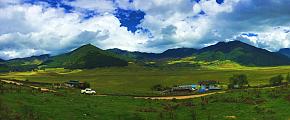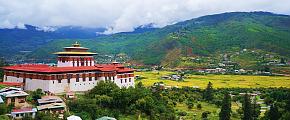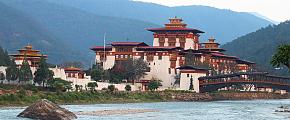How Does Bhutan Turn Its Strict Travel Requirements into Attractive Merits?
Bhutan's mystery wasn't unveiled to the public until foreign visitors were allowed to enter this country in 1974. Largely isolated from the rest of the world for decades, this Buddhist country strictly controls its tourism industry to maintain its unspoiled beauty. In the meantime, many people may also be curious about how Bhutan turns its strict travel requirements into attractive merits. Well, this article may help to understand.
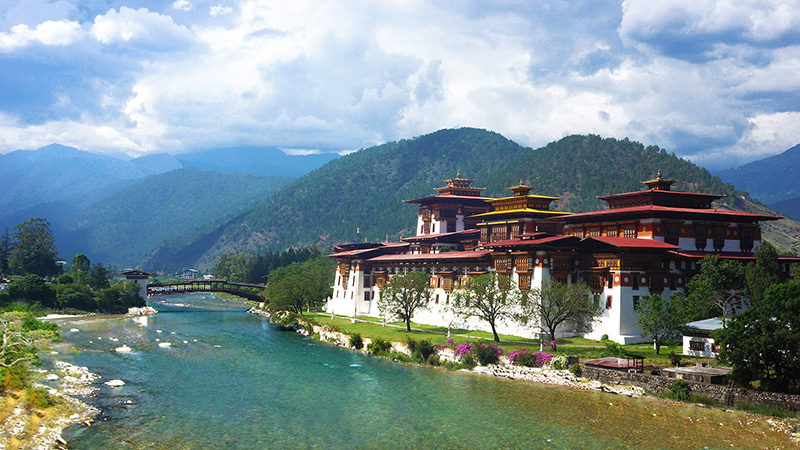 Punakha Dzong, Bhutan
Punakha Dzong, Bhutan
1. Bhutan prohibits independent tourists for its pristine life.
Almost all visas are only issued to tourists booking with a locally licensed tour operator, directly or through a foreign travel agent. Therefore, tourists have to travel with an agent for an organized tour, which includes sightseeing, transportation, meals, etc. What's more, the tour must be pre-paid, pre-arranged, and escorted by the tour guide. However, tourists still have flexibility during the time when they visit villages, hike, and communicate with local people if they like.
It's well-known to most people that Bhutan prohibits independent tourists from maintaining its ecological values. His Majesty King Wangchuk set this policy for Gross National Happiness because of his concern that a large number of visitors would disturb local people's daily lives and may cause the disappearance of its treasures. For this reason, when tourists come to Bhutan with their local guides, they'll witness the most pristine daily life in the world.
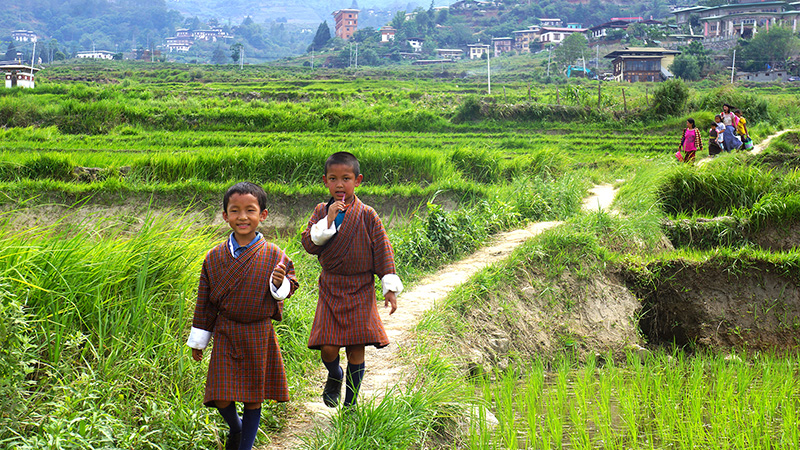 Local Children in Bhutan
Local Children in Bhutan
2. To keep the tourism strategy, Bhutan sets a daily tariff.
At present, many countries are trying to encourage more international visitors by lowering travel fees. However, Bhutan is doing the opposite; namely, its government is still practicing its longstanding policy to control the number of visitors with a minimum daily tariff. According to the Official Website of The National Tourism Organization of Bhutan, visitors are normally charged $200 per day (low season) or $250 per day (high season) when traveling in Bhutan. This tariff covers the cost of accommodations, meals, transportation, services of guides and drivers, entrance fees, internal taxes and charges, and so on.
The strategy of "low volume, high quality" to tourism is the Bhutanese's pride, and this is a sustainable way to help the country get further development. Of course, this will cost a lot, but meanwhile, after tourists come here, they don't have to worry about arbitrary charges. They'll get what they pay for and love the trip to Bhutan!
3. Only a few ways are available, so Bhutan is a quiet paradise to visit.
Limiting the number of tourists has been one way to keep Bhutan itself out of the world. Now, although there is no exact figure of the limitation, Bhutan only sets a few accesses for foreigners. For example, if tourists want to go by air, they could just choose from two airlines: government-owned Druk Air and a private airline, Bhutan Airlines. Usually, there are several regular flights to Paro, where the only international airport is located, from Kathmandu (Nepal), Delhi (India), Singapore, and Bangkok (Thailand), either directly or via Dhaka (Bangladesh) and Kolkata (India).
Due to the limitation of regular flights and other tourism facilities, the number of international visitors in Bhutan is much less than it in other destinations. When tourists travel in Bhutan, they become some of the few who have explored this mysterious kingdom. It's a unique honor, right?
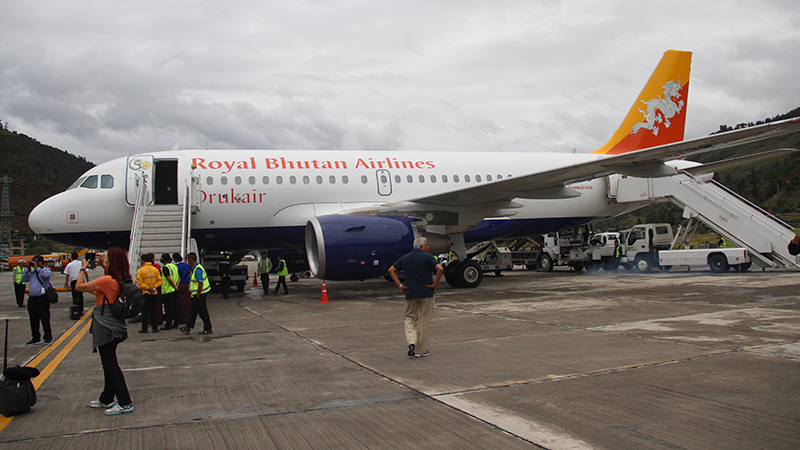 Paro Airport
Paro Airport
4. Bhutan keeps its folkway by strict customs policies.
Usually, there is no need for visitors to declare all the expensive equipment when they travel to other countries; but to Bhutan, they should do it strictly. As soon as tourists arrive in Bhutan, they'll be asked to complete a baggage declaration form, which is to ensure that they take everything with them when they leave the country. Once tourists want to import any items to Bhutan for sale or gift, they might need to pay customs duty. In addition, any tobacco brought into the country incurs a 200% duty, and amounts are limited to 200 cigarettes. (Smoking is banned in public places!)
Most tourists may think that these strict customs policies are unreasonable. But in Bhutan, to avoid being "invaded" by foreign substances is a way to keep its folkway honest. When tourists really come to this country, they'll love it, despite this "ridiculous" policy.
5. Because of some restrictions, Bhutan protects its culture well.
Tourists even need route permits when moving between all districts in Bhutan except Paro to Thimphu! Before they travel, their tour operators will obtain a permit for the places in the itineraries, and this needs to be checked and endorsed by the government. Generally, this is going on in the background.
In addition, tourists are allowed to enter the temple only when a licensed Bhutanese guide is accompanied. More importantly, they'll be asked to follow several restrictions, such as visiting hours, dress codes, etc. Bhutan asks tourists to follow these strictly in order to keep its deep respect for its beliefs and religion, as well as protect its Buddhist culture better.
After reading this, you may find these "travel requirements" annoying, but thanks to all of these, Bhutan's spiritual and cultural wealth is well-preserved at present. Now, if you want to have a truly unique experience in this last place on earth touched by the modern world, please contact us at trip@odynovotours.com , and we'll tailor-make an unforgettable tour for you. Yes! Sooner rather than later!

